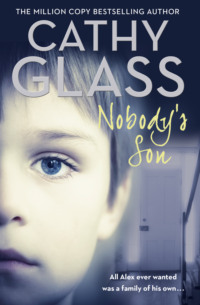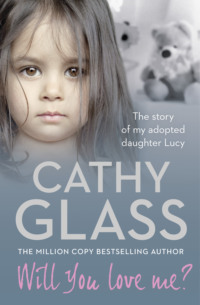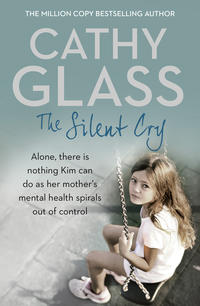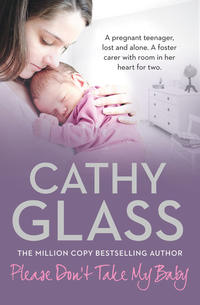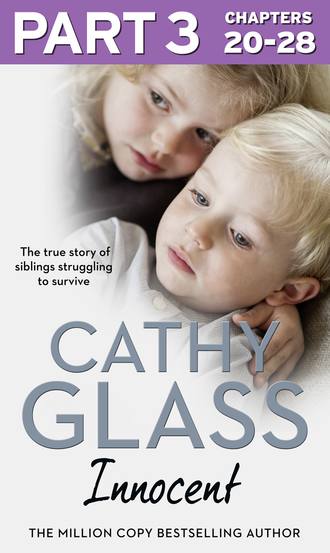
Полная версия
Innocent: Part 3 of 3: The True Story of Siblings Struggling to Survive
Wanting to know more about her illness so I could try to understand it, I typed Munchausen by proxy – as FDIA is more commonly referred to – into the search engine and found a medical website that gave a lot of information. I began to read: Munchausen syndrome by proxy (MSP), also known as Factitious Disorder Imposed on Another (FDIA), is a mental illness that affects caregivers, especially mothers of small children. Someone suffering from FDIA will act as though their child is sick. They will lie to doctors about their child’s health in order to gain attention and sympathy. They may also intentionally make their child sick, resulting in painful or risky medical procedures for the child. Someone who has FDIA may cause symptoms by withholding food or fluid, poisoning, suffocating, giving the child inappropriate medicines or not giving them prescribed medicines.
Common symptoms and illnesses found in the victims of FDIA are vomiting, diarrhoea, seizures, breathing difficulty and asthma, infections and allergic reactions. This was exactly what Molly and Kit had been suffering from, induced by the syrup. I read on. Identifying someone with FDIA is difficult. Many have suffered mental, physical or sexual abuse growing up. I had no idea if that was true of Aneta. People who have FDIA appear to be attentive parents, concerned with the well-being of their child. That was also true of Aneta. Many times, the child’s symptoms do not match a single disease. True again.
One way to confirm suspicions of FDIA is to separate the mother from her child and see if the symptoms disappear. Unless, like Aneta, you continue to poison your children from a distance, I thought bitterly. Doctors can look at patterns of appointments and hospital attendance. For example, a child who presents with a range of different illnesses in a short time may cause suspicion. The article ended: If you believe a child is currently a victim of FDIA, you should contact the police or child protection services.
In view of what I’d read, I wondered if the doctors should have suspected something was wrong sooner, but that was for the health authority to look into. I answered the emails in my inbox and then, exhausted after a gruelling week, switched off the computer, made a cup of tea and went into the living room to write up my log notes. It was only when I opened my log that I realized it was Friday the 13th. Associated with bad luck and misfortune, it seemed quite fitting, given what had been revealed today. But foster carers are expected to be professional and non-judgemental, so I wrote up my log notes objectively and dispassionately. The weekend beckoned and we had a lot to be grateful for: Molly and Kit were healthy and were being allowed to stay with us. My family and my mother were all doing well, so I needed to stop worrying. Sometimes that’s easier said than done in fostering.
During the weekend my thoughts often returned to what Aneta had been doing to her children, but overall it was a good weekend. Probably the best we’d had since they’d arrived. The pressure had eased now they’d stopped being sick, and now I knew they would be with us for Christmas I could plan ahead. On Saturday, Lucy, Paula and I took Molly and Kit into town to do some Christmas shopping. I had a lot to buy for and having the girls there meant they could distract the children while I bought some of their presents. We spent over an hour in the toy shop and then another hour in the toy area of the department store. Many new toys were on display for children to explore and play with (and persuade their parents or carers to buy!). Lucy and Paula also began their Christmas shopping, and we had lunch out. It was such a relief to know Molly and Kit could eat what they wanted and I didn’t have to worry about possible allergens the food or drink contained. However, it would take time before I completely got out of the habit of checking labels – I found myself doing it automatically.
When we arrived home that afternoon, I decided to give the children the toy mobile phones I’d bought for their leaving gifts, minus the card. I could have added them to their Christmas sacks, but I thought it would be nice if they had them now to enjoy. We didn’t need to keep them amused from then on; they spent most of the time on their phones, pretending to make and receive calls. Kirsty came in to say hello to everyone and then she and Adrian went to see a play at the repertory theatre in a neighbouring town.
The children slept well and I woke to hear Molly on her phone, pretending to talk to Kit. Kit’s phone was downstairs. Sunday was a bright, cold day and I took the children to a park a short drive away that had different play equipment. Lucy came with us, but Paula stayed at home to complete some college work, having been out shopping with us for most of the previous day. Later we all had dinner together, and then prepared ourselves for Monday and the start of another working week.
‘Are we seeing Mummy on Monday?’ Molly asked as I took her to bed.
‘No, love, not tomorrow.’
‘Can I see Daddy?’
‘Not at present.’
‘When can I see Mummy and Daddy?’ she asked plaintively. I felt so sorry for her.
‘I’m not sure, love. Tess is coming to talk to us next week. We will ask her then.’
‘I miss Mummy and Daddy,’ she said, her little face puckering and close to tears.
‘I know, love. It’s difficult. But it’s important we keep you and Kit safe and healthy – just as you are now.’
An older child might have asked more and delved deeper, but at Molly’s age she didn’t have the reasoning or vocabulary to do that, although she would intuit what she couldn’t verbalize and needed lots of reassurance and hugs, just as Kit did. Despite what their mother (and possibly their father too) had done to them, they loved their parents.
On Monday Tess telephoned, asked us what sort of weekend we’d had and then said she’d visit us on Wednesday afternoon at two o’clock. She didn’t have anything new to tell me at present. When I finished the call, Molly asked me who was on the phone.
‘Your social worker, Tess,’ I said. ‘She’s coming to see us on Wednesday. That’s not today or tomorrow but the next day.’
‘Will I see Mummy and Daddy then?’
‘No, love, but we can ask her about that.’
‘You ask,’ she said.
‘Yes, I will.’ I gave her and Kit another big hug.
I took the children to our local park on Monday afternoon, and then on Tuesday a fostering friend of mine visited. She was looking after a four-year-old boy who attended nursery five mornings a week. He played nicely with Molly and went out of his way to include Kit in the games, even adapting them for a younger child. He was only three months older then Molly, but his social skills were far more advanced. He was able to organize little games and knew how to take turns and share. I thought again that Molly would benefit from nursery and playing with similar-aged children. She played with Kit sometimes, of course, and my family, and I spent hours playing with both children, but she needed to interact with her peer group. I made a note to raise the matter with Tess. Previously Aneta had objected to the children attending nursery or playgroup on the grounds they were susceptible to germs and it would make them ill. That concern had now been negated. It wasn’t germs that had been making Molly and Kit ill, but Aneta. I didn’t see any reason why Molly shouldn’t start attending nursery for a few mornings a week, even if their mother still objected.
On Wednesday, five minutes before Tess was due to arrive, I changed the boxes of toys in the living room for fresh ones in the hope that Molly and Kit would be kept amused while Tess and I talked. Unfortunately, Tess was half an hour late, by which time the children had tired of the toys, so I changed them again. I find that rotating toys allows children to come to them afresh. I’d put their mobile phones out of sight as the noise they made, especially when on together, would make it difficult for Tess and me to concentrate or even hear each other properly.
Tess apologized for being late, asked for a glass of water and went into the living room. ‘My! You two look well,’ she exclaimed as soon as she saw Molly and Kit.
‘Can you see a difference?’ I asked, pleased.
‘Yes, even since the last time I saw them. They look so much brighter.’
‘My family and I thought so too, but it’s good to hear it from you.’
‘So how are you both?’ she asked Molly and Kit as she sipped her water. ‘You look fine to me.’
Kit carried on playing, while Molly looked to me to ask the question that was on her mind.
‘Molly would like to know when she can see her parents,’ I said. ‘She’s asked me a few times.’
‘That reminds me,’ Tess said. ‘I’ve got a photograph for you.’ She delved into her bag and took out a six-by-four-inch photograph of Molly and Kit with their parents. It had been taken at contact, presumably by the contact supervisor on Filip’s or Aneta’s phone.
‘That’s great. I’ll buy a frame for it and we can put in on the shelf in your bedroom,’ I told the children enthusiastically. Most children in care have at least one family photograph, some have many. It helps to keep the memory of their parents alive while they are separated from them.
Molly looked at the picture and then at me again. I knew why: Tess hadn’t answered my question.
‘So is there no contact at present?’ I asked Tess.
‘No, but Mummy and Daddy both send their love,’ she told the children. ‘You and Kit are being well looked after and are happy here with Cathy, so there is nothing for you to worry about. Christmas is coming. You’ll have lots of fun. What do you want Father Christmas to bring?’ While Molly thought about this, Tess said quietly to me, ‘Aneta is in –’ and she named the psychiatric unit in the city hospital. I nodded. ‘Their solicitor has been in touch. Filip is asking for contact, just for him. We’re considering it, but I want to hear from the police first.’
I nodded again.
‘Can I see Mummy and Daddy?’ Molly asked.
‘Not for now,’ Tess said. ‘Cathy will tell you if that changes.’ Clearly Tess had decided not to tell Molly their mother was receiving psychiatric care and I thought that was the right decision. Mental illness can be difficult for adults to understand; it would be virtually impossible to explain it to a three-year-old, and Molly didn’t need to know. ‘OK?’ Tess asked Molly, and she gave a small nod. I thought it was time to change the subject.
‘I was thinking it would be nice if Molly went to nursery a few mornings each week,’ I said. ‘I could take Kit to a toddler group so they both get used to playing with other children.’
‘Excellent idea,’ Tess said positively, and smiled at Molly. She took a notepad and pen from her bag and made a note. ‘Do you have a nursery in mind?’ she asked me.
‘There is a good one attached to our local infant school, but I know they have a waiting list.’
‘Looked-after children can usually be found a place,’ she said. ‘Give me the details and I’ll speak to them.’
I told her the name and address of the nursery, then as she wrote I quickly googled their contact number on my phone and read that out. ‘They also run a toddler group one afternoon a week where the parent or carer stays. There isn’t a waiting list, I checked. I was thinking of taking Kit to that. Obviously, Molly would come too.’
‘Fine with me,’ Tess said, and made another note. ‘Anything else?’ she asked. Both children were playing again.
‘Yes,’ I said. ‘I’ve received this letter from the allergy clinic at the hospital.’ I passed her the letter. ‘You remember a referral was made that time I had to take Kit to the hospital and he was kept in overnight?’ She nodded as she read the letter.
‘He doesn’t need to go to this, does he?’ she asked me, looking up.
‘No, I don’t think so. He’s not allergic to anything.’
‘Other than vomiting linctus,’ Tess said cuttingly.
‘Exactly. If you are OK with it, I thought I’d phone and cancel the appointment.’
‘Yes. The children have been through enough unnecessary medical tests, they don’t need any more.’
She handed back the letter and I put it to one side to deal with later.
‘Can we have our mobile phones?’ Molly now asked me.
Tess looked at me, horrified.
‘Toy ones,’ I clarified.
She laughed. ‘For one moment I thought –’
‘I know. But surely no one gives a child aged three a real one?’
‘You’d be surprised.’
‘Can we have our phones?’ Molly asked again.
‘Yes, OK, but we’ll put the volume on low,’ I said.
I retrieved the toy phones from the cupboard and turned down the volume on both before handing them to the children. They began pressing buttons and the recorded messages, sounds and music played as Tess and I talked. She asked me about the children’s routine, their development, general health and well-being, which was a standard part of most social worker visits, and took notes. Finally, she said, ‘All that’s left is for me to have a look around.’ It’s usual for the social worker to check the foster carer’s house when they visit, just as the supervising social worker does. ‘Are you going to show me your bedroom?’ she asked the children.
‘Yes,’ Molly said, and took it as a sign to turn up the volume on her phone and on Kit’s. It didn’t matter. Tess and I had finished talking.
Tess took Kit’s free hand and I took Molly’s and the four of us walked around the house, in and out of the rooms, to the nursery rhymes coming loudly from Kit’s phone and the voice counting to twenty from Molly’s.
Конец ознакомительного фрагмента.
Текст предоставлен ООО «ЛитРес».
Прочитайте эту книгу целиком, купив полную легальную версию на ЛитРес.
Безопасно оплатить книгу можно банковской картой Visa, MasterCard, Maestro, со счета мобильного телефона, с платежного терминала, в салоне МТС или Связной, через PayPal, WebMoney, Яндекс.Деньги, QIWI Кошелек, бонусными картами или другим удобным Вам способом.



